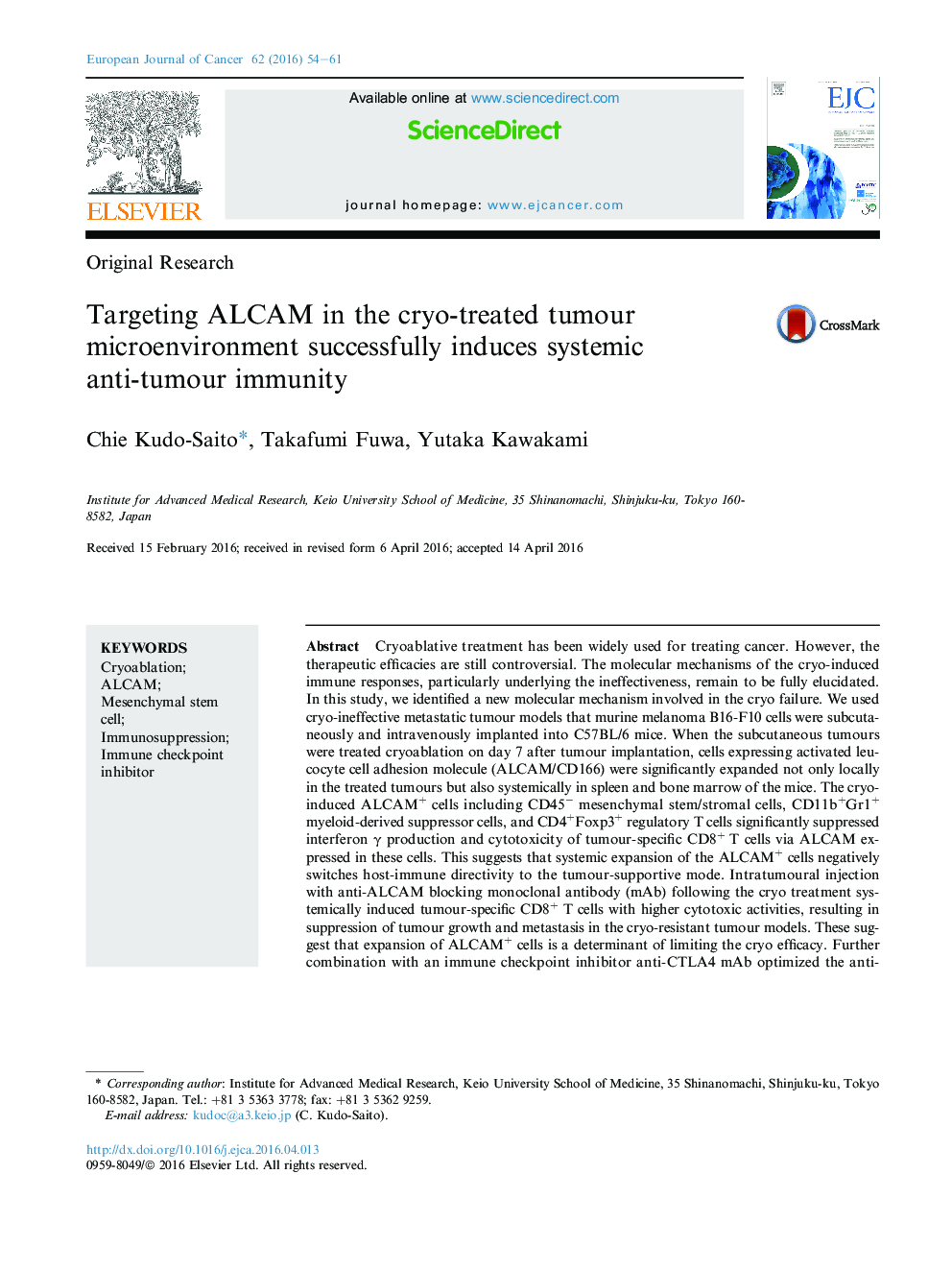| Article ID | Journal | Published Year | Pages | File Type |
|---|---|---|---|---|
| 8441131 | European Journal of Cancer | 2016 | 8 Pages |
Abstract
Cryoablative treatment has been widely used for treating cancer. However, the therapeutic efficacies are still controversial. The molecular mechanisms of the cryo-induced immune responses, particularly underlying the ineffectiveness, remain to be fully elucidated. In this study, we identified a new molecular mechanism involved in the cryo failure. We used cryo-ineffective metastatic tumour models that murine melanoma B16-F10 cells were subcutaneously and intravenously implanted into C57BL/6 mice. When the subcutaneous tumours were treated cryoablation on day 7 after tumour implantation, cells expressing activated leucocyte cell adhesion molecule (ALCAM/CD166) were significantly expanded not only locally in the treated tumours but also systemically in spleen and bone marrow of the mice. The cryo-induced ALCAM+ cells including CD45â mesenchymal stem/stromal cells, CD11b+Gr1+ myeloid-derived suppressor cells, and CD4+Foxp3+ regulatory T cells significantly suppressed interferon γ production and cytotoxicity of tumour-specific CD8+ T cells via ALCAM expressed in these cells. This suggests that systemic expansion of the ALCAM+ cells negatively switches host-immune directivity to the tumour-supportive mode. Intratumoural injection with anti-ALCAM blocking monoclonal antibody (mAb) following the cryo treatment systemically induced tumour-specific CD8+ T cells with higher cytotoxic activities, resulting in suppression of tumour growth and metastasis in the cryo-resistant tumour models. These suggest that expansion of ALCAM+ cells is a determinant of limiting the cryo efficacy. Further combination with an immune checkpoint inhibitor anti-CTLA4 mAb optimized the anti-tumour efficacy of the dual-combination therapy. Targeting ALCAM may be a promising strategy for overcoming the cryo ineffectiveness leading to the better practical use of cryoablation in clinical treatment of cancer.
Related Topics
Life Sciences
Biochemistry, Genetics and Molecular Biology
Cancer Research
Authors
Chie Kudo-Saito, Takafumi Fuwa, Yutaka Kawakami,
